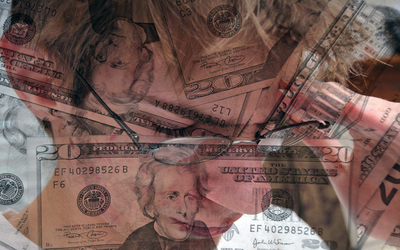Has the Recession Hit Mental Health Sufferers Hardest?
When it comes to the fallout of the recession, it seems that those with mental health problems have been hit the hardest. This is according to a new study which looked at data on the rates of employment and mental health problems from 27 EU countries from 2006 and 2010 – both before and after the 2008 economic crisis. The study, published in the peer-reviewed open access medical journal PLOS One, found a consistent pattern; in both years, people with mental health problems were more likely to be unemployed. However, the unemployment gap between people with and without mental health problems had widened in 2010, implying that people with mental health problems may have been hit harder by the economic recession since 2008.
The study was carried out by researchers from King’s College London and the London School of Economics and Political Science in the UK, and Johns Hopkins Bloomberg School of Public Health in the US. You may have to take the findings with a pinch of salt, however, as the data was collected through brief, self-reported questionnaires, and diagnoses of mental health problems were not validated. This gives the study certain limitations, but still it is a valuable study overall. People with mental health problems may be more vulnerable to the risk of unemployment during times of economic recession, but the researchers need to further explore the reasons for this.
When you have mental health problems, unemployment can worsen your symptoms because it causes you to become more isolated and less sure of a regular income. This can lead to a vicious cycle in which you cannot get another job, so your symptoms worsen, so it becomes even harder to find employment etc. According to the study, people with mental health problems were more likely to be female, significantly older, more likely to have finished education prior to the age of 20 or had no further education, more likely to be unemployed/retired/unable to work through illness, and less likely to be in paid employment, a student or a home-maker. The researchers also found that the more mental health problems a person had, the more likely they were to be unemployed relative to the rest of the general population.

Comments are closed.